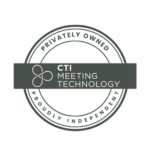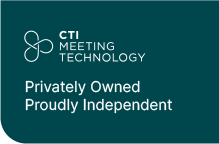Organizing a scientific meeting is not cheap. At least not if you want to offer an enjoyable experience for all participants. Organizers need to look for ways to host low-cost events without sacrificing quality. From securing a venue to marketing the meeting, costs can quickly escalate. However, with meticulous planning and leveraging technology, you can host engaging events without breaking the bank. Keep reading to discover fail-proof strategies for managing a cost-effective event.
Establishing a Realistic Budget
Unfortunately, organizers don’t have an unlimited budget. Setting a realistic budget helps discern the areas where costs can be cut. Start by creating a detailed list of all potential expenses and categorize them. This helps to set priorities and identify which elements are non-negotiable.
Once you have a list, allocate funds accordingly, ensuring that there is extra for any unexpected costs. Organizers can use information from past events to assign a specific budget to each area. If this is your first time hosting an event, conduct thorough research to ensure the budget is realistic. Don’t forget to set goals as well. If there’s an area where you need to invest more money and time, reflect that in the event budget. Setting a realistic budget helps avoid financial pitfalls and ensures the event remains within the planned financial framework.
Selecting The Venue
One of the most expensive costs in event planning is the venue. Traditional venues like conference centers or hotels can be pricey to rent – not to mention all the costs associated with the venue (transportation, catering, staff, etc.).
If your conference is not too large, consider alternative venues such as community centers or university halls to cut costs. A virtual component can be implemented for large-scale events to reduce venue costs. Virtual events eliminate the need for physical space and can accommodate a larger audience. Enabling attendees to participate remotely or offering sessions online can free up space at the venue. Additionally, virtual attendance enhances accessibility and participation, making it a great initiative to implement in scientific conferences.
DIY Tasks
While professional services offer expertise and reliability, some tasks can be managed in-house to save money. For example, your team can handle event invitations, banner designs, and promotion.
Managing these areas yourself reduces costs and allows for a more personalized touch. No one understands your organization better than you and your team! However, organizers should ensure your staff’s time isn’t better spent elsewhere, as these assignments can be time-consuming.
Managing some parts of the event in-house for a reduced – almost free – cost is ideal, but you must enlist professional services to ensure quality. Tasks such as audio-visual setup, catering, and security are best left to professionals who do this for a living.
Outsource (but do it wisely)
Outsourcing is an inevitable part of event planning. We’ve already talked about tasks that can be handled by your team and those that need to be outsourced. However, choosing which areas belong to each group is not so easy. Organizers should identify larger, more delicate operations requiring professional skills, such as technical support, AV setup, or event photography.
Outsourcing these aspects ensures high-quality service and allows your team to focus on other critical areas of the event. But it’s not cheap. Do your research; don’t be afraid to ask for multiple quotes. Our advice: 1) build a long-term relationship with your favorite vendors; 2) negotiate bulk service packages. This may not seem like the thriftiest solution in the short term, but you will save a lot of money in a multi-year contract.
Efficient Marketing Strategies
Marketing your event is essential to attract attendees, but it doesn’t have to be costly! Utilize social media platforms to promote your event. LinkedIn is the go-to platform for scientific meetings, and your target audience is likely to be there.
Posting about your upcoming event and creating buzz around it can be easy. You can also conduct paid campaigns to ensure that you’re reaching the right audience. Although not free, they can attract many potential attendees at a fraction of the cost of traditional advertising.
Email marketing is another cost-effective strategy. Send personalized invitations and updates to your mailing list to keep potential attendees engaged. Although not completely free, tools like Mailchimp can streamline your email marketing efforts and send out campaigns in seconds, freeing up valuable time for your staff.
Utilizing Event Technology
But perhaps the biggest game-changer when planning cost-effective events is event management software. Event technology can automate numerous processes, reducing manual work and minimizing errors.
Tasks that might take your team days, such as registration, abstract collection, or program management, can be easily automated. Additionally, virtual event platforms allow organizers to host hybrid events, combining in-person and online elements to reach a broader audience without significantly increasing costs.
Investing in reliable event management technology makes organizing a breeze. By integrating these solutions, organizers can streamline processes, improve attendee experience, and achieve significant cost savings with every meeting.
Post-Event Analysis and Redirection
If you have been able to stick to your budget, then you planned efficiently. But there’s always room for improvement!
Collect feedback after every meeting and conduct post-event analysis to identify areas that could benefit from a larger budget and those where it can be reduced. This information is invaluable when refining future events and optimizing your budget. Adjusting your budget after analyzing every meeting ensures better financial planning and resource allocation for upcoming events.
Wrapping Up…
Planning a cost-effective meeting is hard work, but not impossible! We hope you better understand how to strategize when budgeting for your event and which areas to focus on to reduce costs.
Event technology plays a pivotal role in reducing costs and enhancing event quality. Choosing a software provider that can help manage your event from start to finish will prove more cost-efficient than relying on multiple vendors. Explore our solutions to discover how CTI’s award-winning event technology can help you save money and create unforgettable experiences.





